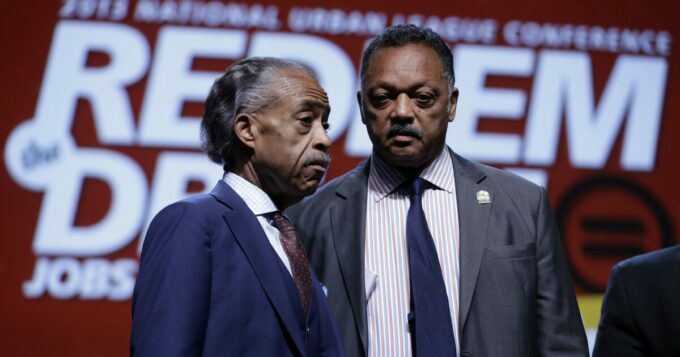
“I shall always hold it as a beacon for anything I may be able to do in the future. I sincerely hope I shall always be a credit to my race and to the motion picture industry.”
Those words from Hattie McDaniel, the first black to win an Oscar, epitomized the mindset of those trailblazing men and women to whom color was a limitation, but not a barrier. Though she beat out fellow “Gone With The Wind” actress Olivia de Haviland and several other women as the only non-White for best supporting actress in 1940, receiving the prestigious honor was foremost in her mind.
As the daughter of two former slaves, she understood that this achievement was not important merely because she was Black, but that despite her challenges with discrimination, she could not be stopped. With that same focus some 20 years earlier, the first Black filmmaker Oscar Devereaux Micheaux understood the value of his position was about much more than the breaking of glass ceilings.
Micheaux strove for excellence, because he recognized that being successful, even as a Black man at the turn of the century, was still more about quality-than color. As an author, director and independent film producer with over 40 films to his credit, he was a shrewd businessman whose skills in life inspired and enriched, rather than limited him.
Rising Up
In those darkest and difficult days where the KKK, Black Codes and Jim Crow laws were very real and present dangers, those that fought their way through depression, oppression and racial challenges set out to prove that they themselves were truly their greatest hurdle. It would be at least 20 years before best actor award winner Sydney Poitier would become the first Black man to reach this height, again against Hollywood heavy-hitters like Richard Harris, Rex Harrison and even Paul Newman- all White actors. Yet again, Poitier did not allow the restrictions and racism of the times to take center stage in his acceptance speech, but rather called attention to the magnificence of the moment:
“I accept this award in memory of all the African-American actors and actresses who went before me in the difficult years, on whose shoulders I was privileged to stand to see where I might go.”
Nearly 40 years later in 1986, a young film student named John Singleton developed a script that he soon sold to Columbia Pictures. It was a vision of life in South Central LA that would eventually become known as “Boyz n the Hood.” This aspiring soon-to-be-director drew his inspiration for the film from his own upbringing in violence-
ridden south-central LA. The iconic film released in 1991, gave audiences a glimpse into the urban underbelly of America that they had only read about at that time, or seen depicted on the evening news.
Art Imitates Life
For many of us (myself included), this was a life that we were all too familiar with. Drugs and drug-dealers, prostitution, gang-violence and drive-by-shootings were mainstays of the life we knew.
While films like “COLORS” revealed some of the neighborhood violence, this was the first time John Q Public saw it from the perspective of those who lived it daily. Its importance could not be overstated. The truth of the violence going on within Black communities was an unspoken secret that no longer remained as such. Though this was the first foray into depicting such a life, it would not be the last.
Similar themed films like “Juice”, “Menace II Society”, “Poetic Justice”, and even the urban comedy classic, “Friday” would soon follow. These films, though spanning more than 10 years, all shared a similar theme: bringing awareness to the truth about Black life, without disparaging those who were white. Then “Barbershop” changed everything.
Real Talk
This 2002 landmark film provided an X-ray into a staple of the Black community: the Black-owned barbershop. Interestingly, the fallout also changed (with few exceptions) the way black-themed movies were made. Shortly after the film’s debut, several Black leaders led by activist Rev. Al Sharpton fought to have the film boycotted, despite being directed by and mostly starring Black people.
A critical and financial success, it centered around a young Black man who inherited a barbershop from his late father, and the day-to-day activities and conversations that ensued. Contrary to what should have been a popular movie idea, Sharpton and others took issue with a scrutinizing light being shone on the Black community due to
statements like these from one of the film’s main stars, Cedric the Entertainer, voicing his unpopular opinions.
“There are three things that Black people need to tell the truth about. Number one: Rodney King should’ve gotten his a$$ beat for being drunk in a Hyundai in a white part of Los Angeles. Number two: O.J. did it! And
number three: Rosa Parks didn’t do nuthin’ but sit her Black a$$ down!” and, “m-a-a-a-n, f%&# Jesse Jackson!”
There was likewise candor from his co-star Michael Ealy.
“We don’t need reparations; we need restraint! Some discipline! Don’t go out and buy a Range Rover when you livin’ with your mama! And pay your mama some rent! And can we please, please, *please* try and teach our kids something other than the “Chronic” album? And *please*, Black people, try and be on time for something other than free before eleven at the club!”
Sharpton’s boycott proved to be unsuccessful, as Barbershop went on to receive positive reviews from critics, and widespread praise going to the performances of the cast.
Money Talks
It was a major commercial success as well, grossing $77 million worldwide on a $12 million production budget, launching the careers of then-acting newcomers Eve and Ealy. Concerning the criticism of the film, producer Walter Latham who had worked extensively with Cedric was quoted in the LA Times stating the following:
“I cannot believe that finally there is this success at the box office, there is forward momentum, and the negativity is coming from the same people who are always saying we need more blacks in TV, more blacks in the movies. There’s got to be a better way to criticize people.”
Though Sharpton and others like him were unable to stop the film’s success, their critique had a resounding effect on the sequels as well as other black-directed and themed films to come. The industry would never be the same again.



